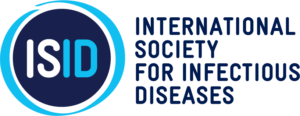ANTIMICROBIAL RESISTANCE: FROM BEING OBLIVIOUS TO BEING INFORMED
The need for patient and public engagement in antimicrobial stewardship and antimicrobial resistance campaigns
I was an ignorant consumer of antibiotics, thanks to its ready availability over the counter in India and relatively cheap cost in comparison to expensive doctor appointments. It is easier and cheaper in the short term to pop a pill and go about the day without paying heed to the large billboard talking about responsible use of antibiotics. It was when I joined a research project with focus on antibiotic resistance that I realised those contents on billboards were just a tip of one of many icebergs. – Surya Surendran
For a week from 18 to 24 November, the 2021 World Antibiotic Awareness Week (WAAW) will raise awareness about the dangers of antimicrobial resistant infections. The ongoing COVID-19 pandemic has provided insight into another potential infectious disease pandemic, antimicrobial resistance (AMR), and how it is causing and will cause even greater havoc if not properly controlled. AMR is an increasing threat in the public health arena, and of concern to stakeholders in healthcare and policy makers. Controlling AMR depends largely on two linked approaches: infection prevention and control initiatives to prevent transmission of resistant micro-organisms and antimicrobial stewardship (AMS) to ensure that patients are not unnecessarily exposed to antibiotic use which may predispose them and those around them to AMR.
While the issue of AMR and its potential solutions are discussed in various fora, there is a dearth of patient and public participation, which can lead to uninformed decision-making on infection control strategies and antimicrobial use by the public. Containing AMR requires efforts beyond healthcare settings. With patients and public having the potential to access, expect and consume antimicrobials on their own without the need for prescriptions especially in many low- and middle-income countries (LMICs), their participation and contribution needs to be recognised and utilised in polices and initiatives to tackle AMR.
As a constant member of the healthcare pathway and the subject of healthcare decisions and interventions, patients are ideally positioned to participate in healthcare issues such as AMS initiatives to address AMR. Participation in their own care can empower patients through increased awareness of their rights and ability to voice needs and clarify queries while excluding patients from healthcare processes has the potential to create misinformation, frustration, and anxiety. However, to be able to participate in and engage with the issue of AMR, patients and the public need to be equipped with basic knowledge of infections and antimicrobials, and the complexities associated with their use. Our [unpublished] AMR-related research has revealed that patients often do not know what antibiotics they are consuming, and the potential for antibiotic resistance (ABR) with antibiotic use. It has also been noted that while patients may not feel involved in antibiotic decision-making, they have an indirect influence on the antibiotic decision-making practices of healthcare workers whose prescribing actions may be influenced by the patient’s or patient carer’s expectation for an antibiotic. In many LMICs, the purchase of antimicrobials, as with most other medicines, is out of pocket. This creates a tendency for incomplete course of expensive antibiotics which may predispose to ABR. Such issues highlight the need for patient and carer/public engagement in infection care decisions, especially as it relates to the need or otherwise for antibiotic use.
The National Action Plans (NAPs) and policies of various countries to address AMR have highlighted the need for patient and public involvement, with the potential for AMR discourse in some countries. however, their implementation at ground level can be challenging. Research has also highlighted the limited number of studies that document patient engagement or participation in AMS initiatives to address AMR Information, presented through pamphlets and webpages for instance, exist to educate patients and the public about AMR however, these may not grab the required attention. AMR is still presented as an issue for the future, with attributed deaths seemingly largely unnoticed. Drug-resistant infections due to AMR are projected to cause 10 million deaths annually by the year 2050; much more than has currently been attributed to the COVID-19 virus pandemic. While this may seem like some futuristic plot, it is important to note that AMR-related deaths are already occurring and building up to this projected statistic. Rather than talk about AMR in the abstract sense, we need to make it relatable and show how it affects individuals, families, livelihoods and quality of life – to facilitate patient and public involvement and participation. Initiatives for patient involvement not only require strategies for patient engagement and participation, but also helps cultivate an environment where patient participation is welcome.
With increase in social science research for healthcare, patient and public engagement has become one of the focus points in recent advances to address AMR. Organisations like CE4AMR have been involved in using participatory and creative methods to deliver realistic and sustainable solutions for AMR that are locally relevant to each community. Various research projects have also developed interventions to engage patients to address AMR. The Wellcome Trust first published a toolkit to facilitate responsive dialogues on drug-resistant infections in 2019. The ASPIRES project, which aims to optimise antibiotic use in surgical pathways, is actively involved in engagement of patients and carers in the AMR discourse, following up with AMR-related animation design in its Indian setting. Findings from the ASPIRES study have presented foundation for further research on patient engagement and involvement which is currently being explored. It is also reassuring to see that our massive online open course (MOOC) on AMR has a session on Patient-Public engagement, taking the initiative to a wider audience. Embracing the perception of greater stakeholder (patient and public) involvement to address AMR will ensure that healthcare recipients are afforded a seat at the table, to provide input into matters that affect them. This will contribute to a more wholesome perspective of stakeholder involvement for AMR control, beneficial to both healthcare providers and recipients and resulting in more representative decision-making for AMR control.
Esmita is a senior research pharmacist within the faculty of Medicine at Imperial College London at the NIHR Health Protection Research Unit for Healthcare Associated Infections and Antimicrobial Resistance. She is also a visiting Researcher at Haukeland University Hospital, Bergen Norway, and adjunct faculty at Amrita Institute of Medical Sciences, Kerala India, where she is involved in helping implement and investigate national antibiotic stewardship programmes. Her work in AMR has been recognised through the Academy of Medical Sciences UK-India AMR Visiting Professor award. She is an expert advisor to the Commonwealth Pharmacy Association and a Global Health Fellow with the Office of Chief Pharmaceutical Officer, England. She is involved in mentoring and supporting clinical pharmacists across different healthcare settings and economies in implementing antimicrobial stewardship interventions. Her doctoral thesis investigated antimicrobial stewardship across India, Norway, France, Burkina Faso and England.
After completing her post-graduate training at Cambridge University Hospitals and ten years of experience as a clinical pharmacist in hospitals, Esmita began her research career. She is an investigator in a NIHR Invention for Innovation award investigating the development and use of a point of care personalised clinical decision support tool for antimicrobial prescribing. In her academic career the focus of her research has been behaviour change interventions in the field of antimicrobial stewardship and the application of social science research methods to develop contextually relevant solutions. She is co-investigator on the ESRC award (2017-2021): Optimising antibiotic use along surgical pathways: addressing antimicrobial resistance and improving clinical outcomes (in England, Scotland, Rwanda, India & South Africa). Esmita completed her Masters (MPharm Hons) in Pharmacy at University College London, her MSc in Infectious Diseases at LSHTM and her PhD from Imperial College London.

